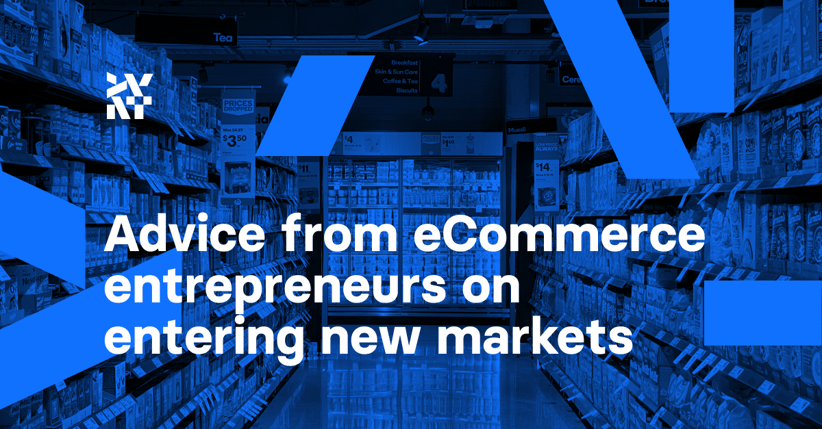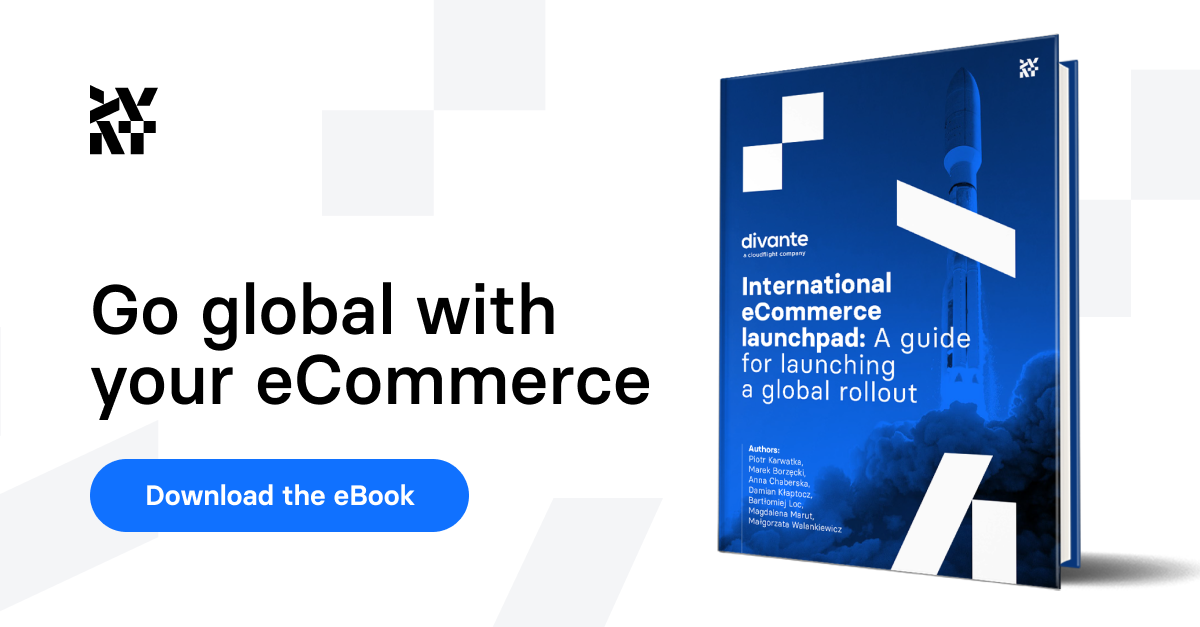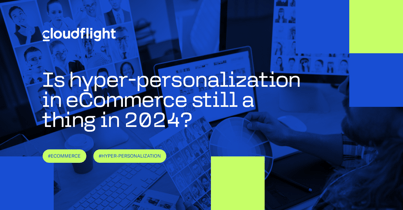As part of our “International eCommerce launchpad” eBook, we had a chance to talk to some experienced eCommerce entrepreneurs who have rolled out their businesses to global markets. They provided some great advice that I think you’ll find helpful. Their advice is insightful and, since it comes backed with their real-world experience, something that should be taken into consideration if your eCommerce business wants to expand to other countries.
With that in mind, let’s meet our eCommerce experts:
 Katie-Jay Simmons, retail and eCommerce expert at Fit Small Business: Katie-Jay aims to put answers in the hands of small business owners by leveraging more than 10 years of retail and hospitality experience. Informed by a background in gemology, she specializes in jewelry and luxury eCommerce with a focus on global sourcing. Her scope of expertise ranges from traditional brick-and-mortar businesses to innovative, high-volume eCommerce operations.
Katie-Jay Simmons, retail and eCommerce expert at Fit Small Business: Katie-Jay aims to put answers in the hands of small business owners by leveraging more than 10 years of retail and hospitality experience. Informed by a background in gemology, she specializes in jewelry and luxury eCommerce with a focus on global sourcing. Her scope of expertise ranges from traditional brick-and-mortar businesses to innovative, high-volume eCommerce operations.
.png?width=180&name=david-bittonheadshot%20(1).png) David Bitton, Co-founder and CMO at DoorLoop: David is a five-time entrepreneur, legal CLE speaker, and best-selling author living in Miami, Florida. He was the former Co-founder and CEO of PracticePanther, the #1 law practice management software in the U.S. It was recently acquired. He is now the Co-founder and CMO of DoorLoop, property management software that has raised over $10 million.
David Bitton, Co-founder and CMO at DoorLoop: David is a five-time entrepreneur, legal CLE speaker, and best-selling author living in Miami, Florida. He was the former Co-founder and CEO of PracticePanther, the #1 law practice management software in the U.S. It was recently acquired. He is now the Co-founder and CMO of DoorLoop, property management software that has raised over $10 million.
.png?width=180&name=Christian%20Headshot%20(1).png)
Christian Sculthorp, Eloped.com.au: Christian has been working in eCommerce for almost a decade now. His most recent exit was for his Vaped portfolio, which was three websites in Canada, the U.S., and Australia that grossed over $2 million a year. Now he's trying his hand in the wedding market with Eloped, an elopement package company based in Australia with plans to grow internationally.
.jpg?width=180&name=Image_sam%20mendelsohn%20(1).jpg) Sam Mendelsohn, COO of Sozy: Sam is a three-time brand founder, bootstrapping each brand to seven figures, living in Encinitas, California. Most recently, he works as CMO and COO for Sozy, a female-founded clothing brand that supports women in every part of the business with 10% of profit supporting survivors of sexual violence.
Sam Mendelsohn, COO of Sozy: Sam is a three-time brand founder, bootstrapping each brand to seven figures, living in Encinitas, California. Most recently, he works as CMO and COO for Sozy, a female-founded clothing brand that supports women in every part of the business with 10% of profit supporting survivors of sexual violence.
What’s your advice for companies that enter a foreign market for the first time?
“Take your time and do it right. There is a lot of logistical and tax stuff to consider and it is better to go slow and methodically. Even better is to partner with a cross-border solution that can help with all the ins and outs.”
Sam Mendelsohn, COO of Sozy
“Don't think you can just copy and repeat your business from elsewhere. There can be a lot of cultural differences between countries that you won't consider right away that can take a while to overcome. For example, even between the U.S. and Australia, they use different words to search for things that affect SEO/PPC.
“Also, be sure to get an accountant in the foreign market that you're going to. I avoided doing that for a while, and it was a huge headache. If you can find a firm that works in multiple countries, that's even better.”
Christian Sculthorp, Eloped.com.au
“Beyond the basics, scaling a business to new foreign markets requires careful strategy in three main areas: marketing, user experience, and fulfillment. It’s crucial to start with thorough, localized keyword research. By doing so, you can measure demand for your goods in overseas markets and lay the groundwork for targeted SEO efforts. This step in your company’s growth is the time to spring for a sophisticated research tool even if you’ve managed to get by with free online resources in the past.
“Make sure your website delivers an appealing user experience to your international customers. Of course, elements like language options and currency conversions must be added, but don’t neglect smaller details like customer service accessibility and site speed.”
Katie-Jay Simmons, Retail and eCommerce Expert at Fit Small Business
“Ensure that you have a thorough awareness of the cultural variances that exist. You must be aware of particular concepts, design choices, and word usage that should and should not be used depending on the cultural context. This guarantees that your promotional and marketing efforts remain relevant and do not offend anyone.
“Make sure that you hire team members from the country into which you are venturing. You can use their existing understanding of how the market operates in their country to ensure the success of your venture.
“Make sure you know whom to consult. Take advantage of the fact that many countries have their own entities dedicated to bringing foreign enterprises. These organizations will assist you in learning about local customs and legislation that will impact your business.”
David Bitton, Co-founder and CMO at DoorLoop
What’s the most important in scaling a business?
“Have a product people want to buy and a product they will continue to come back and buy more of.”
Sam Mendelsohn, COO of Sozy
“I think the important thing in scaling a business internationally is outsourcing when you can. I used many different fulfillment centers around the world so I wouldn't have to manage leases and employees in different countries. I outsourced customer service so it would scale across different countries as well.
“Don't take on too many salaries at the get-go until you are sure that the new market is going to work.”
Christian Sculthorp, Eloped.com.au
“It is critical to thoroughly evaluate your business to determine whether or not it is suitable for expansion. Consider whether there is sufficient demand for what you sell to allow you to scale to a profitable level. If there is no demand, scaling will be impossible. As a result, it is critical to perfect your product-market fit. Check whether your product still has flaws, if you completely understand who your customers are, and if the market you're in has a sustainable need.”
David Bitton, Co-founder and CMO at DoorLoop
What are the biggest threats for companies that enter new markets? What should they beware of?
“Opportunity cost. Make sure what you are spending your time on has the maximum benefit to the company as a whole and has the largest amount of upside if it works.”
Sam Mendelsohn, COO of Sozy
“I guess the biggest threat would be to assume that the new market will perform the same as your original market. So, you take the number of people and multiply it by sales and assume that's what you're going to do.
“There are way too many variables to assume that!
“For example, I started a company in Indonesia in the supplement space. Because there was so much search volume, I thought it would be a winner. While I got a ton of traffic, I made almost no sales. We found out that the reason why was because Indonesians buy primarily through WhatsApp and Facebook through personal connections and groups and not direct through eCommerce websites.”
Christian Sculthorp, Eloped.com.au
“Fulfillment and logistics are make-or-break factors in international expansion. Customers simply won’t convert if shipping costs nearly as much as the product itself and delivery takes weeks on end. The best way to provide low-cost, fast shipping to a consistent international customer base is to keep portions of your inventory in local fulfillment centers near them. Look for third-party logistics (3PL) based in your country that has an international warehouse network.
“When entering a new market, some of the biggest challenges that businesses face are the hardest to anticipate and plan for, like political instability, shifting regulations, and costly import detentions and seizures. On top of that, local infrastructure limitations can dramatically impact website performance in certain areas. As your company moves toward international expansion, make sure you’re properly researching the compatibility and risks associated with your target regions.”
Katie-Jay Simmons, Retail and eCommerce Expert at Fit Small Business
Did you notice any surprising differences in how people of different nationalities and origins buy stuff, shop online, or do business?
“Nothing super specific other than they LOOOVE Live QVC-style shopping in Asia.”
Sam Mendelsohn, COO of Sozy
Do you have any life stories to share about growing a business, especially entering new markets?
“Well, when I started out, I was just mailing things out of my apartment at a loss. I just wanted to test out the idea to see if people would buy. They did, so I went ahead with the business.
“I did the same thing when entering new markets. I would find a way to dropship to not take on any upfront costs to test the market out. I did this in the U.S. and Australia and validated that they would buy the products.”
Christian Sculthorp, Eloped.com.au
Want to read more on entering foreign markets with eCommerce?
Published May 31, 2022













